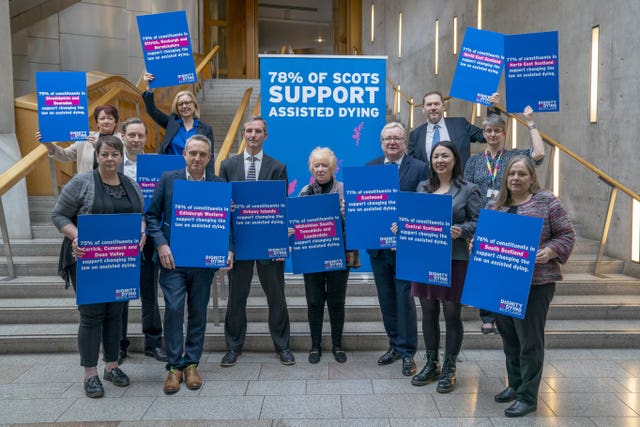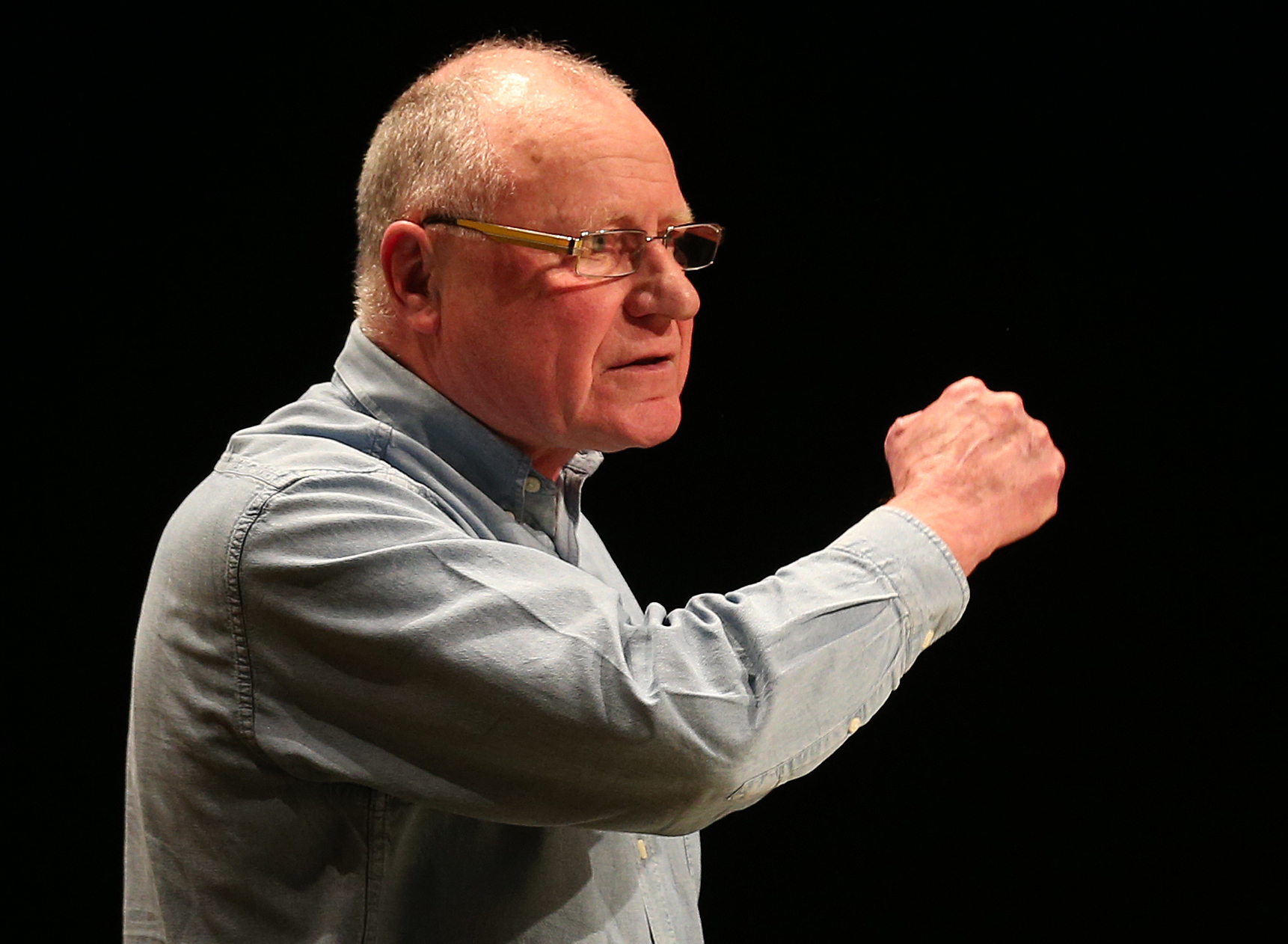‘Compelling evidence’ to make assisted dying legal, says MSP as Bill published
Liberal Democrat Liam McArthur has lodged Assisted Dying for Terminally Ill Adults (Scotland) Bill at Holyrood.

Legislation to introduce assisted dying for terminally ill people in Scotland has been published at Holyrood – with the MSP behind it insisting there is “compelling evidence” to support the move.
Liam McArthur said he is “confident” the Scottish Parliament will back his legislation when it comes before it for a vote, adding “robust safeguards” are included in the Bill.
A consultation by Mr McArthur ahead of publication of his Assisted Dying for Terminally Ill Adults (Scotland) Bill found 76% of the 14,038 people who took part fully support such a change, with another 2% partially supporting it.

With Holyrood likely to vote on the proposals later this year, it will be the third time MSPs have considered the issue – with two previous attempts to change the law overwhelmingly defeated.
Liberal Democrat Mr McArthur said MSPs will “want to look closely at the detail and consider the compelling evidence supporting a change in the law”, but he added: “I’m confident Parliament will back my proposals to give terminally ill adults the choice they need.”
His Bill sets out plans to give people over the age of 16 with an advanced terminal illness the option of requesting an assisted death.
They would have to have the mental capacity to make such a request, which would have to be made voluntarily without them being coerced.
Two doctors would have to be satisfied of the patient’s condition, and also that they have not been pressurised into their decision.
Only people who have lived in Scotland for at least a year would be allowed to make such a request. The Bill also sets out a mandatory 14-day “reflection” period between a qualifying patient making a request and being given the necessary medication.
At this point, a medical professional would make a final check on the patient’s capacity.
Mr McArthur said: “This Bill contains robust safeguards, similar to those which have been safely and successfully introduced in countries such as Australia, New Zealand and the United States, where they continue to enjoy strong public support.
“Our current laws on assisted dying are failing too many terminally ill Scots at the end of life.
“Too often, and despite the best efforts of palliative care, dying people are facing traumatic deaths that harm both them and those they leave behind.
“Polling has consistently shown overwhelming public support for assisted dying, and now I believe that politicians are catching up with where the public has been for some time.”
Some elements of the Bill, such as the regulation of medication used to end the lives of those who request it, may require consent from Westminster as they touch on reserved areas of the law.
Speaking to journalists on Thursday, Mr McArthur said there have been “constructive” conversations with the Scotland Office on this and he has been encouraged by comments from Prime Minister Rishi Sunak and Labour leader Sir Keir Starmer around votes on assisted dying.
He said: “There are similar Bills being taken forward in Jersey and the Isle of Man at the moment, we may not be the first to pass legislation.
“But in a sense it’s not a race. I understand the urgency, particularly for those with a terminal illness this change in the law cannot come soon enough.
“Each legislature will need to properly scrutinise the detail of the legislation to make sure they get the details right.”
Following First Minister’s Questions, he told the BBC he is not currently minded to be “supportive” of the Bill but he looked forward to a “respectful debate”.
A survey by campaign group Dignity in Dying found an average of 78% support for the Bill across Scotland, with the group saying this shows “an unshakeable majority of support” for the change.
Ally Thomson, director of Dignity in Dying Scotland, said: “The message from constituents to their MSPs is strikingly clear – it is time to change the law and vote to give dying people the choice of safe and compassionate assisted dying.
“The Bill published today provides the compassion and choice dying people need and puts safety and protection in place where none currently exists.”
But Bishop Keenan said: “Liam McArthur has today published a damaging Bill which attacks human dignity and introduces a dangerous idea that a citizen can lose their value and worth.
“Assisted suicide sends a message that there are situations when suicide is an appropriate response to one’s individual circumstances, worries, anxieties.
“It normalises suicide and accepts that some people are beyond hope.
“Furthermore, assisted suicide undermines trust in doctors and damages the doctor-patient relationship.
“In countries where assisted suicide is legal, there is evidence that vulnerable people, including the elderly and disabled, experience external pressure to end their lives.”
Dr Gillian Wright, a former palliative care registrar who is part of the Our Duty of Care campaign, also spoke out against the proposals.

“We are encouraged that ordinary doctors and nurses from across Scotland have joined together to send a definite message to MSPs.
“We do understand that there is suffering at the end of life, but this should drive us as a society not to provide assisted suicide, but instead well-funded, accessible, high-quality palliative care for all.”
Professor David Galloway, a former president of the Royal College of Physicians and Surgeons in Glasgow, said: “Medicalised killing should never find a place as a healthcare option. It runs counter to every instinct involved in medical training and practice.”
Former MP and MSP Dennis Canavan, who has seen three of his children die from terminal illnesses, also urged Holyrood to vote against the Bill.
He said: “I have probably had more than my fair share of deaths in my family, having suffered the loss of four children, three of them as the result of terminal illness.
“My children undoubtedly underwent some pain, but it was minimised by caring health professionals. As a result, my children died in dignity and I do not accept that the option of assisted suicide is necessary to ensure dignity in death.”





